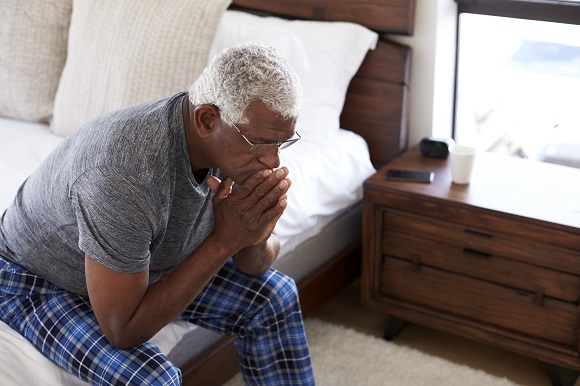Life is tough these days, for everyone. Everyone has their moments of feeling sad and lonely. When things are going wrong there doesn’t seem to be an end to it. Asking for help might seem like the hardest thing you can do.
Difficult circumstances can make you feel low in life. You may wonder how to get out of this dark hole you seem to have fallen into.
At times this feeling of loneliness can become overwhelming. So much so that you begin to slowly withdraw from the world. Life may seem easier to live on your own, without the hassle of facing other people.
The reality is, however, no one can survive in this world all on their own. If you ever experience feelings of loneliness and isolation for long periods of time, it means you may be suffering some form of depression.
How to Tell if You are Depressed
Admitting you are depressed is the first step towards recovery.
To identify if you or a loved one is depressed you can start by looking at key symptoms. These symptoms include:
- low self-esteem
- a poor self image
- feelings of helplessness and hopelessness
- feelings of emptiness
- Feeling guilt and despair.
- loss of energy
- decreased interest in activities
- a general lack of interest in the people and the world around you.
If you find yourself wishing to close yourself off from the world entirely it is time to talk to someone. This could be a close friend or relative or, in more severe cases, it’s best you seek help from a professional.
Asking for help is not failure
Failure to seek help would be a dreadful mistake that could impact your life for years to come. Depression not only affects your emotional well being but also your energy levels, making you feel weak, tired and more susceptible to stress.
This, in turn, can manifest itself physically, as well as mentally, impacting your day to day life, both at work and at home.
Your mind will follow suit and feel as tired as your body. You will find that you sleep long hours, you will become irritable and restless.
Depression can often have a negative effect on your diet, causing people either to loose appetite or begin comfort eating.
The restlessness can lead to thoughts of suicide or death because you are not fully in control of yourself. You may have a mild case of depression when looking at the above symptoms.
Sometimes it may even be just sadness. But, if these symptoms persist for long lengths of time, seeking help is the best solution.

When to Ask for Help
Depression is not just a feeling that makes you feel down in the dumps sometimes. It is a serious condition which can affect your thoughts, mood and behavior.
While asking for help may be uncomfortable, it is a vital step toward recovery. For individuals struggling with negative feelings, reaching out to others may be difficult.
That is because hopelessness, isolation, exhaustion and withdrawing from the rest of the world become part of the condition.
Many people may put down their condition to having a bad day. Depression happens slowly, so recognizing it and realizing you need help can be hard.
Support for this condition comes in many forms like friends, family members, counselors and doctors.
Additional Tips to Seeking for Help
- Identify your negative thoughts and feelings are part of your condition.
- Understand that feeling hopeless is not a weakness, but rather an obstacle, a blockage in your thought process which can be overcome.
- Avoid the temptation to hide from people who love you and society in general.
Coping with Hopelessness
It is essential that you have a supportive group of family and friends. Little activities that need to be performed every day may become an insurmountable task when suffering from depression.
Also, if you are taking medication, you must have someone to help you keep track of your treatment. These are some important roles your family or friends can participate in.
Here are other ways to ask for support from loved ones.
- Ensure at least one of them is available when you need to talk to someone or just a shoulder to cry on.
- Ask for help when it comes to errands and chores.
- Get them to remind you to sleep well, eat well and get some physical exercise.
- Get them to stop by and check up on you regularly, spend time with them going for walks or to the movies.
- Be accountable to them when it comes to alcohol and drugs.
- Ask them to exercise patience because the light on the other side will shine brightly at the end of your ordeal.
Ways to Overcome Depression
Remember it is not your fault that you are affected by feelings of hopelessness. Often when a depressed person realizes the truth about their condition they become very vulnerable.
Depression is no one’s fault, it is an illness. There are several intricate factors that contribute to the core of depression; therefore, pointing fingers is of no use.
Try not to dwell too much on the negative things in life, as you will find them everywhere and this, too, will intensify your despair. Instead, strive to find those flashes of positivity, however brief they might be.
Go for a long walk in the nature, breath in the fresh, scented air and look for the beauty in the world, the colour of flowers in the summer or of fallen leaves in autumn.
Find a movie or a book that always made you feel good, especially if it’s one that’s never failed to make you laugh. Music, too, can be a great healer.
Find some music that always moves and inspires you and listen to it when you’re feeling down.
Spend time with individuals that encourage you to talk and pay attention to what you are saying. These people will simply lend an ear and will avoid giving their diagnosis or prognosis.
Having such individuals in your intimate circle will be very helpful because the situation is a delicate one, and communication can easily breakdown.
You might even find friends and family begin to distance themselves from you – depression isn’t simply difficult for the sufferer to cope with, it can be difficult for those around the sufferer too.
So try and look for family members and friends that show a genuine interest in you. After all, depression is an isolating experience and you need all the love in the world to overcome it.

Dark Thoughts
With your mind adrift in a sea of despair, you will find it hard to focus and concentrate at work. At home you will find it hard to deal with family life and will close yourself off from it entirely.
People who suffer depression often find themselves asking, “what’s the point?” This is a slippery slope, as you find yourself wondering what’s the point of getting up in the morning, what’s the point of dealing with others, and eventually, even wondering what’s the point of living.
If you find yourself asking those questions, and following that particular path of despair to the point of contemplating suicide then it is imperative you seek help immediately.
Sometimes people cannot talk freely with friends or family, and seeking professional help may be unaffordable or otherwise impractical.
For those finding themselves in such a position help is available through various non-profit organizations including Befrienders Worldwide http://www.befrienders.org.
This international organization oversees many suicide counselling hotlines including the various Samaritans offices throughout the world. On their website you will find numbers to call in your specific country.
Their core philosophy is that, of the million suicides on average each year (according to the WHO), many if not most of those could have been prevented if the person just had someone to talk to.
One advantage of the service is anonymity, the other being that, quite often the volunteers are people who have gone through the exact same experience but came through it.
In concluding, asking for help for depression takes courage. Acknowledging your condition head on and looking for ways to cope with your symptoms will put you in the driving seat.
Remember, you cannot tackle this problem on your own. The good news is that you are not alone. You can become better. All that is needed is for you to seek help!

